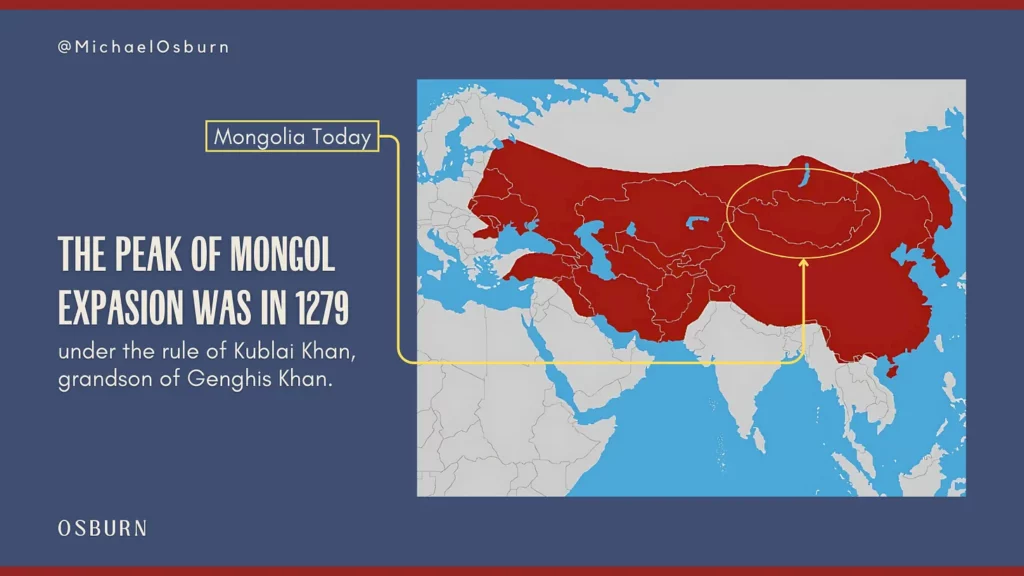3 Insights
“The strength of a family, like the strength of an army, is in its loyalty to each other.” — Genghis Khan
“I care not whether a man is of noble or common birth. All that I ask of him is that he be able to distinguish between good and evil.” — Sabutai
“Without the vision of a goal, a man cannot manage his own life, much less the lives of others.” — Ögedei Khan
What I Learned this Week
Anyone that knows me, knows that I love history. I love exploring timeless wisdom, traditions, and trials. The history of the Mongols and their expansion across Asia and Europe is fascinating. While reading about their military strategies and victories, I came across the Yam System—a postal network that played a crucial role in maintaining their empire.
The Yam system consisted of relay stations placed 20–30 miles apart, each providing new horses to ride and food. This setup allowed riders to cover distances of up to 200 miles per day. Marco Polo himself described this system, saying:
“At each of these stations used by the messengers, there is a large and handsome building…with fine beds and all other necessary articles…On all these posts taken together, there are more than 300,000 horses kept up…and the great buildings…are more than 10,000 in number.”¹
The Yam system also acted as an early form of a passport system, with riders carrying a paiza—a metal tablet that granted them access to resources and safe passage. It’s a proof of how important logistics and infrastructure were for the Mongols’ success.
The Rise of the Mongols
The year 1206 was a turning point in the history of the Mongols. This was the year when the Mongols were ready to step out of the steppes, which were largeflat unforested grasslands in southeastern Europe and/ or Siberia. Before that, they existed only in different tribes.
But under Genghis Khan’s rule, a unified Mongol nation came into existence. The new nation was organized, above all, for war. Genghis Khan’s troops were disciplined, incredibly tough, and well-equipped. The generals were either his sons or men who were incredibly loyal to him. The ruler was named Temüjin, but he named himself Genghis Khan, meaning “Universal Ruler.”
Genghis Khan’s philosophy emphasized the importance of adaptability and innovation in the ever-changing world of warfare and politics. He encouraged his generals to devise new tactics and adapt to the terrain and enemy strengths. Rather than destroy the systems they conquered, the Mongols skillfully integrated local practices and allowed conquered people to maintain their way of life. They appointed local administrators to manage the day-to-day affairs while placing Mongol elites in top positions of power. This balance between Mongol rule and local governance allowed the empire to function effectively across diverse territories. It was this unique governance model that enabled the Mongols to control a vast empire.

Although the Mongol invasion of Europe initially brought terror, its long-term effects were largely positive. One of the most significant outcomes was the period known as the Pax Mongolica, a century of relative peace (around 1280–1360) among the peoples under Mongol rule. This stability allowed the Silk Road trade routes between China and Europe to reopen, facilitating an increase in cultural exchange and wealth along the trade routes.
Central Asia, a region that had always played a key role in connecting China and the West, became more stable under Mongol control. This stability reduced the risks associated with overland trade. As cross-cultural interactions grew in intensity and scope, the exchange of goods along these routes expanded.
When you want to reach immense success in any field you need some sort delusion that can get you there. Being too rational will not help you conquer anything in your world. Innovation combined with determination and relentless work can create progress for any person or group.
Reflections
What do I bring to the table in my relationships and community? How can I bring a sense of loyalty and legacy to all that I do both at work and at home?
The Real Con 120
